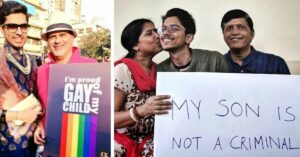‘Together for Decades & We Don’t Have Rights; What Marriage Equality Could Mean For Us’
Radhika Piramal is the vice chairperson of VIP Luggage Industries, and an openly lesbian business leader who has spent years advocating for more inclusion in workplaces. She explains why legalising same-sex marriage in India is vital in more ways than one.
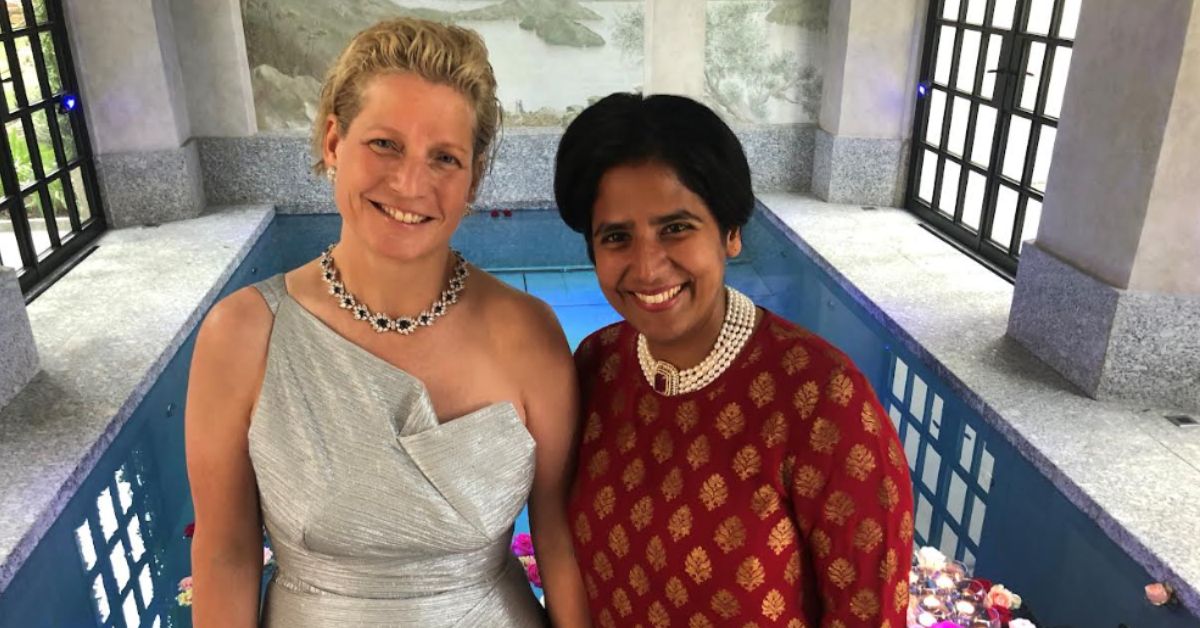
The 90s in India saw many milestones for LGBT rights in India — from the first-ever public protest against anti-sodomy laws to the historic Friendship Walk, a predecessor to the pride march, which garnered support from across Pakistan and Bangladesh as well. Even so, it was a tumultuous time to be gay in the country, and coming out was steeped in stigma, recalls Radhika Piramal (45).
“I was born in Mumbai in 1978 when there was hardly any open or public discussion of sexuality, nor were there any visible queer role models,” she recalls in conversation with The Better India.
Radhika, the vice president and executive director of VIP Industries, is among India’s few openly lesbian business leaders. Over the course of her career, she has harnessed her position to advocate for LGBTQIA+ reforms in corporates throughout the country.
Today, as the Supreme Court debates the legalisation of same-sex marriages, she weighs in on why this legal recognition is vital in more ways than one.
‘It took me 20 years…’
“I realised I was a lesbian in my early teens and accepted myself without any internal shame,” Radhika recalls. “I didn’t want to discuss my sexuality with anyone else, but I was comfortable with myself.”
Radhika first came out to her sister Aparna in 1995, and eventually, a close cousin and her friends. “Then I finally came out to my parents, all before the age of 18. I was fortunate that no one in my circle judged or rejected me. They were worried about my future, and what being lesbian meant for my life and marriage prospects, but there was no question of any change in their unconditional love or my place in the family.”
At the same time, she notes, she was asked to be discreet about her personal life, which she says came from a protective instinct. “As I gained confidence in my 20s, I came out to more and more people.”
Radhika notes that it took her 20 years to be fully out to her family, and 20 more to publicly share her story with the Indian media in 2015 during the Godrej India Culture Lab. Here, she advocated for more inclusive practices and policies in corporates, and noted, “In India, [legitimacy] has to come from family and workplaces, because without that, there is going to be an atmosphere of fear and intimidation.”
1999, India: ‘The Friendship Walk’ is the first Pride march in South Asia. The march began with 15 participants, but by the time they reached the march’s destination, all the major regional newspapers and television channels were there. Positive coverage spread internationally. pic.twitter.com/V6SLtdhegu— Queer Heritage Forum (@QHForum) June 23, 2020
She also noted that the legal framework is central to society. “Marriage is a contract between people. The difference between relationships, friendships, and marriages is the contract that gives rights and privileges. It puts you in the framework of inheritance laws and everything.”
A report by Outlook India detailed that legalising same-sex marriage could be a step forward in solving the financial woes of members of the LGBTQIA+ community — from jointly owning or inheriting property to nominating each other in bank accounts. “It could also lead to financial rights such as alimony and maintenance in case of separation, and provide societal privileges and recognition.”
In the same report, lawyer Shweta Kapoor noted, “Being a first-class legal heir of your partner is in itself a privilege which LGBTQ couples do not enjoy at present.”
Radhika notes that even though marriage is of fundamental importance in Indian society, she chose to marry her partner Amanda in the UK, where same-sex marriage is legal.
Embracing her truth
Recalling how the two of them met, she says, “I studied at Harvard Business School in my mid-20s, and then worked with Bain & Co in New York after graduation. I met Amanda during this period. We fell in love, and we knew we wanted to be life-long partners.”
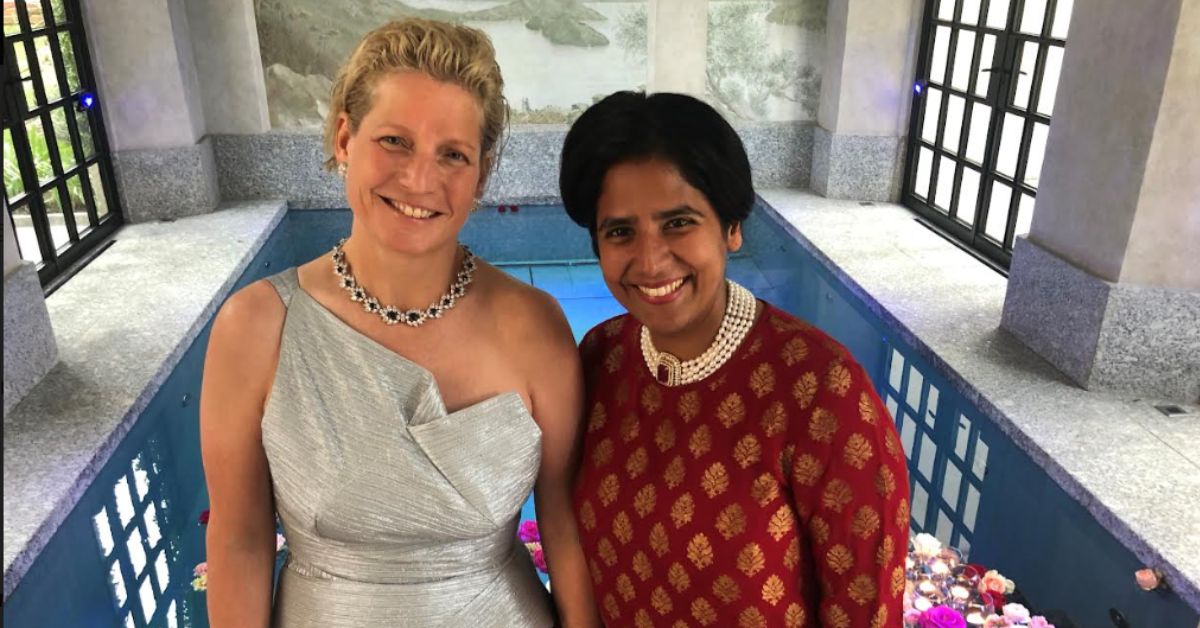
In 2009, both of them moved to Mumbai, living openly together. “This was considered quite unusual, but we never had any doubts, because we loved each other, we had pride and respect for our relationship.”
She adds, “I came out to wider society and the Indian media in my early 30s, just after my civil union with Amanda. It was quite a big decision for my family to support our union, as they were understandably wary of media scrutiny and societal backlash — log kya kahenge? (What will people say?) But they wanted my happiness too, so they affectionately attended my civil union and fully accepted Amanda as a daughter-in-law and sister-in-law of our family.”
For Radhika, the acceptance of her union in public encouraged her to come out to her colleagues and take charge of her own story. “My civil union was reported in Indian tabloids, which, overnight, made my relationship very public. At first, I was anxious about public opinion and negative comments about my personal life. But ultimately, being out in the press enabled me to come out to my colleagues. It took me some time to sensitise our teams because this subject is not usually discussed in the workplace, but I’m proud of the mature way in which I navigated these conversations.”
She also emphasises that while her sexuality does not affect her professionalism, she did not want to keep any secrets at work, nor hide her truth from people. “I want my colleagues to judge me on my work, not my personal life.”
Visible, vocal, and out
Decades of advocating for inclusion have shown Radhika how, since the Supreme Court’s landmark decision to decriminalise consensual same-sex relationships, diversity efforts have picked up pace across Indian companies. She, too, gives Diversity & Inclusion talks to employees of leading companies about her story. “I believe that being visible, vocal, and out helps improve common perceptions of the LGBTQIA+ community.”
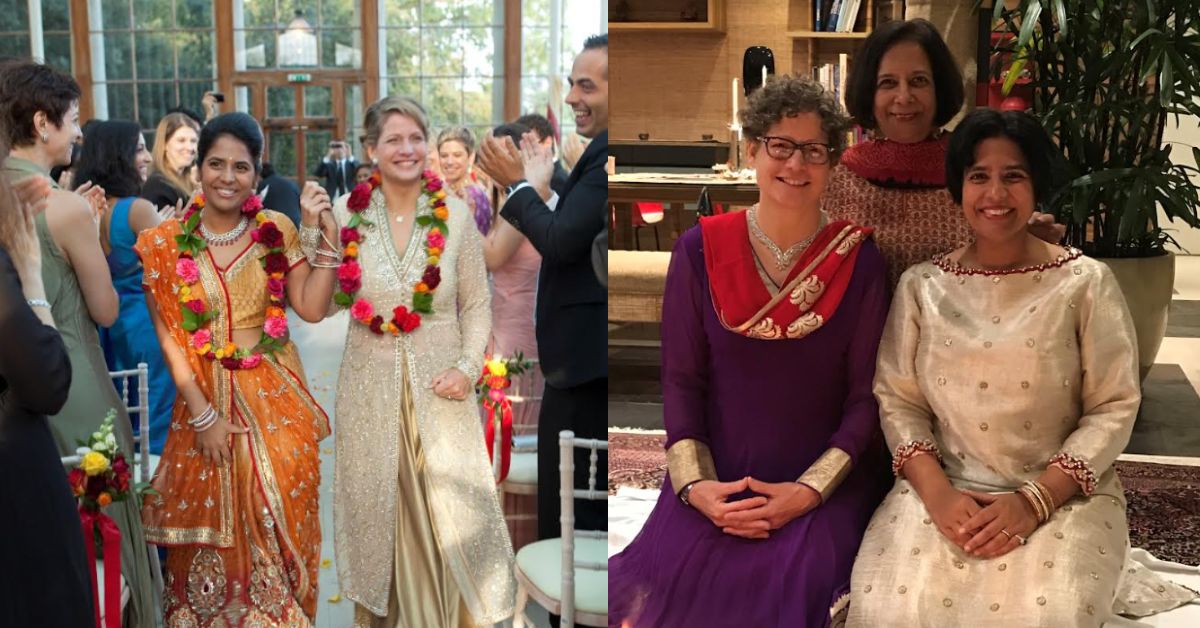
Even so, in the current debate surrounding same-sex marriage, counterarguments state that “living together as partners and having sexual relationships by same-sex individuals…is not comparable with the Indian family unit — a husband, a wife, and children born out of the union.” These arguments also note that same-sex marriage does not conform to “societal morality” and “Indian ethos”.
“But there are so many tangible and intangible benefits for a couple in India, which many straight couples may not even recognise, or take for granted,” Radhika notes.
The intangible benefits here are paramount. Even if same-sex marriage cannot guarantee complete societal acceptance, it can create a much-needed sense of support and community, notes The Hindu. “It can improve mental health outcomes, lend legal and emotional support to the children of the members of this community, and mitigate fears and anxieties surrounding rejection and discrimination.”
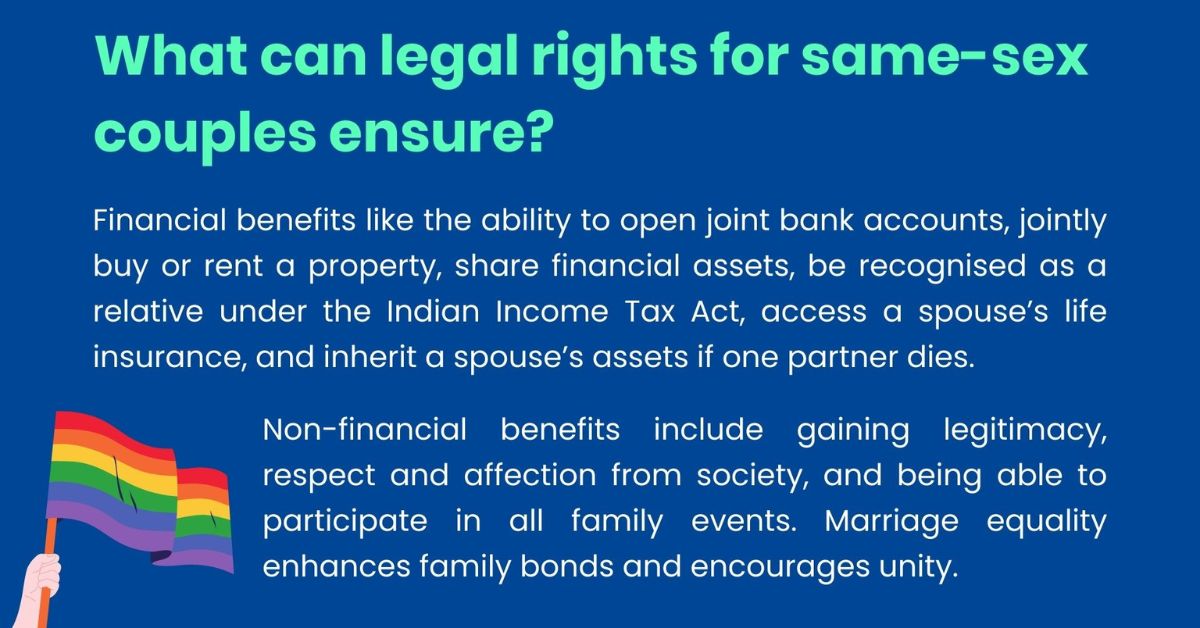
Moreover, the legalisation of same-sex marriage can push India towards more acceptance of the LGBTQIA+ community — just like the 2018 ruling regarding Section 377 did.
Time noted that since the landmark judgement, 58% of Indians believe that same-sex couples should be allowed legal recognition, and 66% believe that they should be able to adopt children. The number of people who believe that same-sex marriage should be accepted went up from 15% in 2014 to 37% in 2020, the report noted.
“Just as decriminalisation helps companies become fairer and better places to work, marriage equality will help further society’s positive perceptions of LGBTQIA+ people,” Radhika emphasises. “Denying marriage equality is discriminatory and unfair.” If you found our stories insightful, informative, or even just enjoyable, we invite you to consider making a voluntary payment to support the work we do at The Better India. Your contribution helps us continue producing quality content that educates, inspires, and drives positive change. Choose one of the payment options below for your contribution- By paying for the stories you value, you directly contribute to sustaining our efforts focused on making a difference in the world. Together, let’s ensure that impactful stories continue to be told and shared, enriching lives and communities alike. Thank you for your support. Here are some frequently asked questions you might find helpful to know why you are contributing?

“This is a historic opportunity. We want to be accepted by the law, by our families, and live the same lives together as everybody else from the heterosexual community.”
Edited by Pranita Bhat; Image credits: Radhika Piramal
Sources
‘How Same-Sex Marriage Will Solve Financial Issues For LGBTQ Couples?’: Written by Meghna Maiti for Outlook India; Published on 18 April 2023
‘Meet the Couple Leading the Push to Legalize Same-Sex Marriage in India’: Written by Astha Rajvanshi for Time; Published on April 19 2023
‘….What Will Happen When We Come Out’: Written by Rashmi Menon for The Economic Times; Published on 14 October 2015
‘Study finds legalisation of same-sex marriage to have positive impact on mental health of LGBTQIA+ individuals’: Written by Alisha Dutta for The Hindu; Published on 17 April 2023
This story made me
-
97
-
121
-
89
-
167





